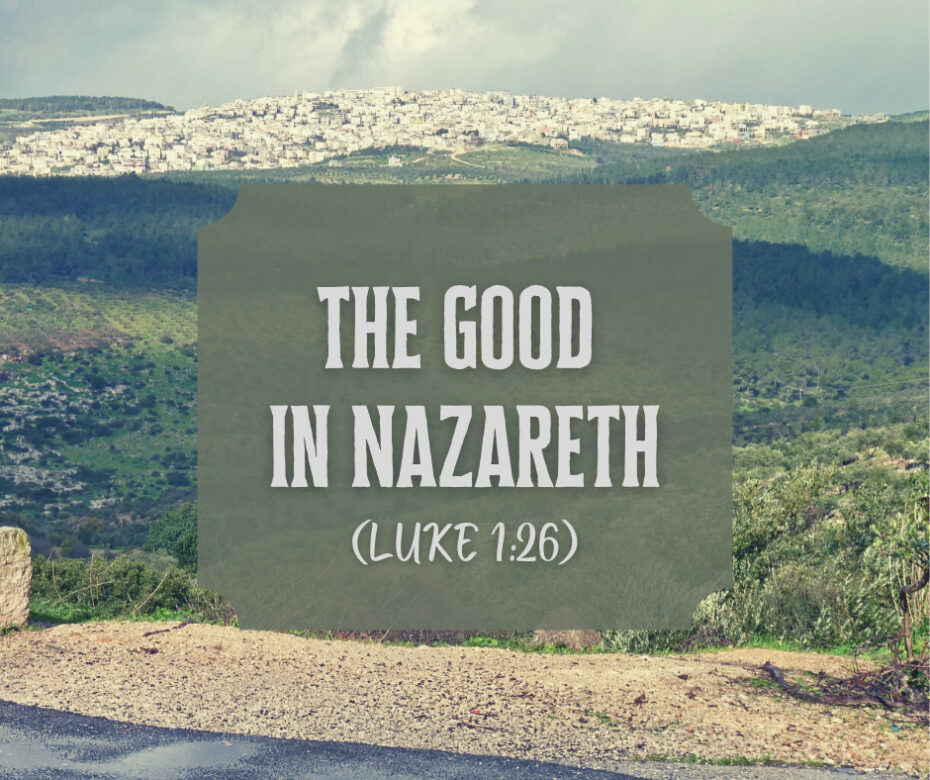Although Theophilus had been instructed about Jesus, he needed certainty. That is, he needed a more stable understanding of who Jesus is and what He did (cf. Luke 1:4). For example, maybe Theophilus heard rumors about Jesus’ unusual birth. What really happened? Luke tells the story.
Sometime after Gabriel’s appearance to Zacharias, he had a second round of good news to deliver. Now in the sixth month the angel was sent by God to the contemptible little town of Nazareth. Do you know of a neighborhood located on “the other side of the tracks”? One with a bad reputation, that, if you ever think about it at all, you think to avoid it? We all do. And so did people in the ancient world. That was Nazareth. When people thought of that city, they asked, “Can anything good come out of Nazareth?” (John 1:46). Whether any good could come out it, that day, a messenger would bring good news into it.
Nazareth was located in the ethnically mixed region of Galilee, in the north of Israel. It was the very last place you would expect to produce the Messiah. In fact, during Jesus’ ministry people would ask, “How can the Messiah come from Galilee?” (John 7:41 NIV). Knowing the region’s tragic history explains their skepticism.
Long ago, Isaiah had already called the region “Galilee of the Gentiles” (Isa 9:1). That expression might have referred to something that happened during Solomon’s reign.
After the king of Tyre supplied timber and gold to build the temple, Solomon rewarded him by gifting him several Galilean cities. But the king of Tyre was disappointed (if not disgusted) by the area. “What kind of towns are these you have given me, my brother?” He called them “the Land of Kabul,” a name that means “as good as nothing” (1 Kgs 9:13). And that’s how people regarded Galilee—good for nothing. How could the Messiah come from there?
After Solomon’s death, the situation worsened. Galilee became part of the Northern Kingdom. It was later conquered by the Assyrians, who forcibly deported and resettled the Jewish residents. Meanwhile, Phoenician and Greek foreigners moved into the vacated lands. After the exile, it took centuries for the Jews to resettle Galilee.
Then, in the 1st century before Christ, things changed. Little towns began to pop up and prosper. One of which was Nazareth, a blue-collar village on the outskirts of Sepphoris, the administrative center of Galilee. Nazareth stood near a highway between Tyre and Sidon in the north and Jerusalem in the south, so it became a natural stopping point for merchants and Roman soldiers looking for a night’s distraction. G. Campbell Morgan says that Nazareth was despised, not for being small, but because it was “a hotbed of corruption” (Morgan, Luke, p. 19). Given that corruption, Nathanael asked, “Can anything good come out of Nazareth?” In fact, good-for-nothing Nazareth was the perfect future home for a Messiah who “made himself nothing” to come and save the world (Phil 2:7 NIV).
Maybe you live in a “lowly” part of the world and have longed to leave it, thinking you can do greater ministry in more prestigious places. If you’ve ever asked, “What good can come from here?” the answer is Jesus. He is the source of any real good. Through you, Jesus can minister in your little town or neighborhood. He can do good there and bring salvation there, just as surely as He could minister in and around Nazareth.


